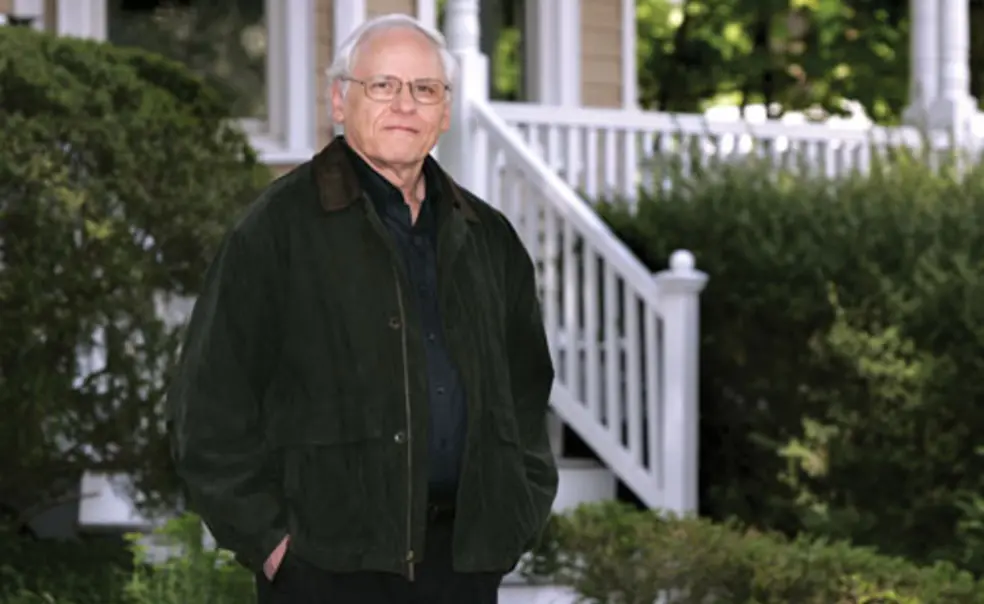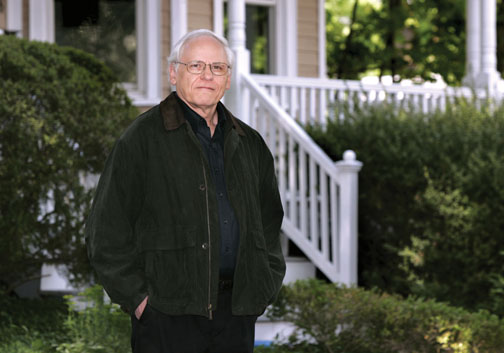A closer look at small-town life
Robert Wuthnow’s book Small-Town America: Finding Community, Shaping the Future (Princeton University Press) corrects two common misperceptions about life in America’s small communities. The first is that people in small towns live idyllic lives free of stress and conflict. The second is that small towns are backwater communities that people leave the first chance they get.
“It is difficult to write about small towns without falling victim to such expressions of nostalgia or mild disdain,” writes Wuthnow, the Gerhard R. Andlinger ’52 Professor of Social Sciences and director of the Center for the Study of Religion.
Based on more than 700 interviews in dozens of communities, Wuthnow’s book is the first major study of America’s small communities in 50 years. He looks at small-town life from a variety of angles, including political life, religious activity, and moral sentiments.
What he found was that small towns are very complex, and he is careful not to generalize about them. He discovered that many residents share a similar understanding of community. They spoke about “cooperation, mutual responsibility, and sharing” as things that they value. A high number of volunteer groups in small towns made it more likely that residents took part in such activities.
“If all this sounds too good to be true, it is,” Wuthnow writes. Residents naturally emphasized the positive aspects of living in small communities, he says, but their lives were not perfect. Interviewees spoke of border disputes with neighbors, for example. And a closer look at volunteerism revealed that only 20 percent of residents are responsible for 80 percent of volunteer work.
People make less money in small towns than those in suburban and urban regions, though there are still subtle class differences. A farmer may be more prosperous and belong to the local country club, setting him apart from a worker in a meatpacking plant.
“There were ways in which inequalities were reduced in small towns,” Wuthnow says. “People who were wealthy didn’t flaunt their wealth, and they often did community service. And people who were not doing as well were helped by other people.”
“The thing that surprised me is that a lot of small towns are doing quite well for themselves,” says Wuthnow. The people he interviewed liked the slower pace of life, the chance to form deep friendships, and the availability of affordable housing. For these reasons he thinks people will continue to choose to live in small towns for decades to come. “Contrary to the notion that small towns are totally a thing of the past, that’s not true at all,” says Wuthnow.













No responses yet